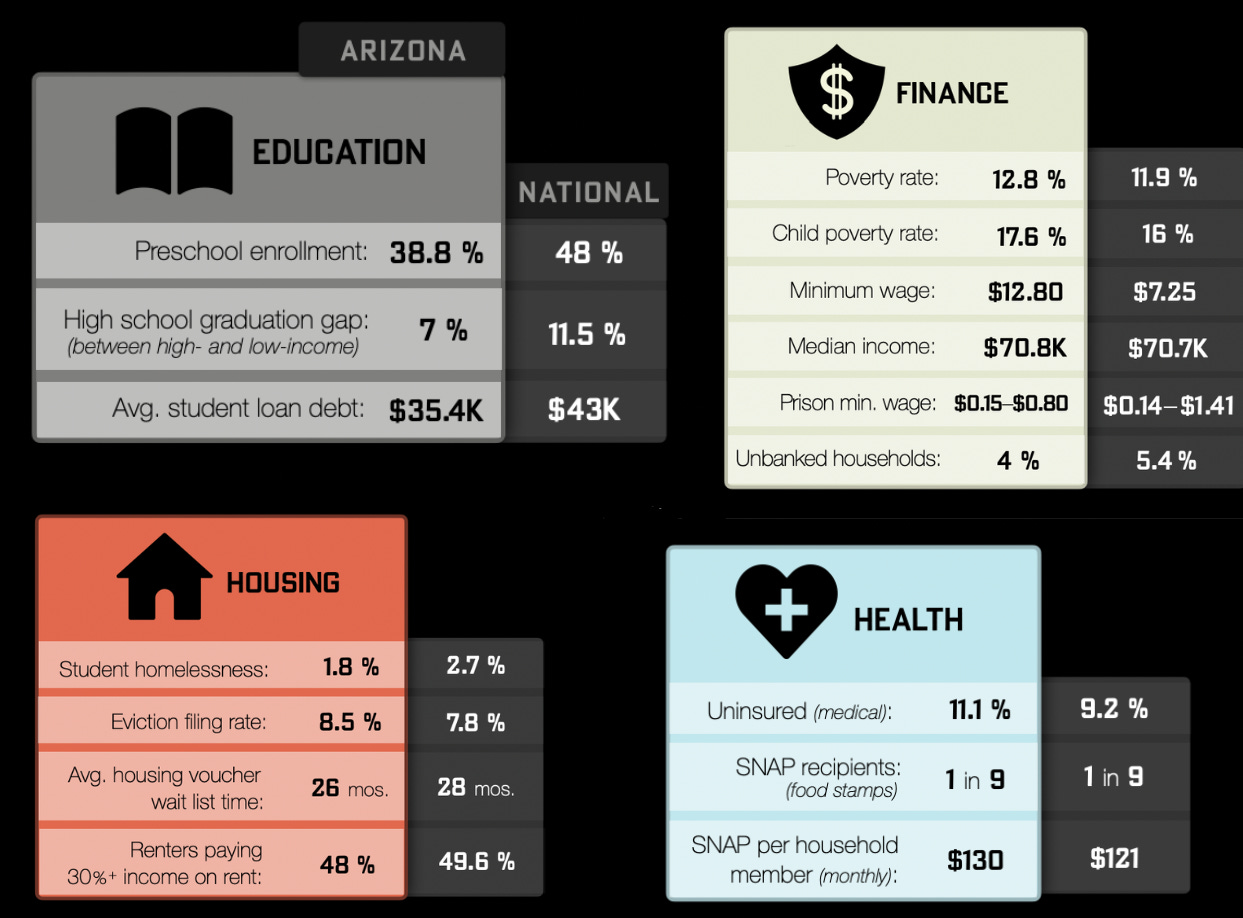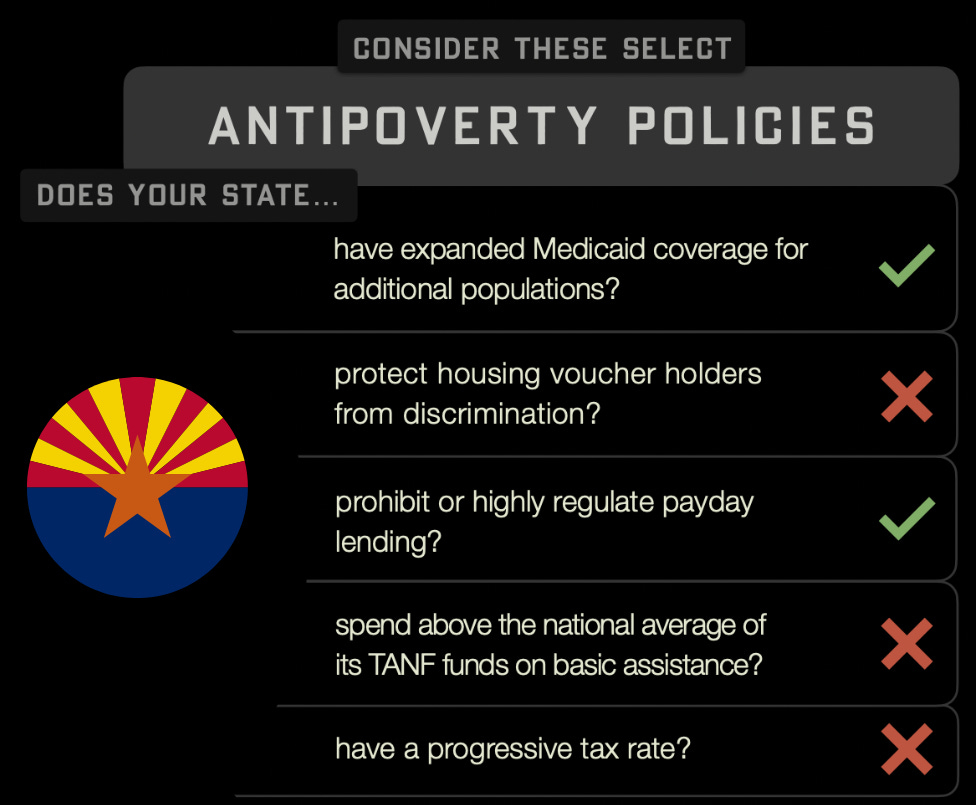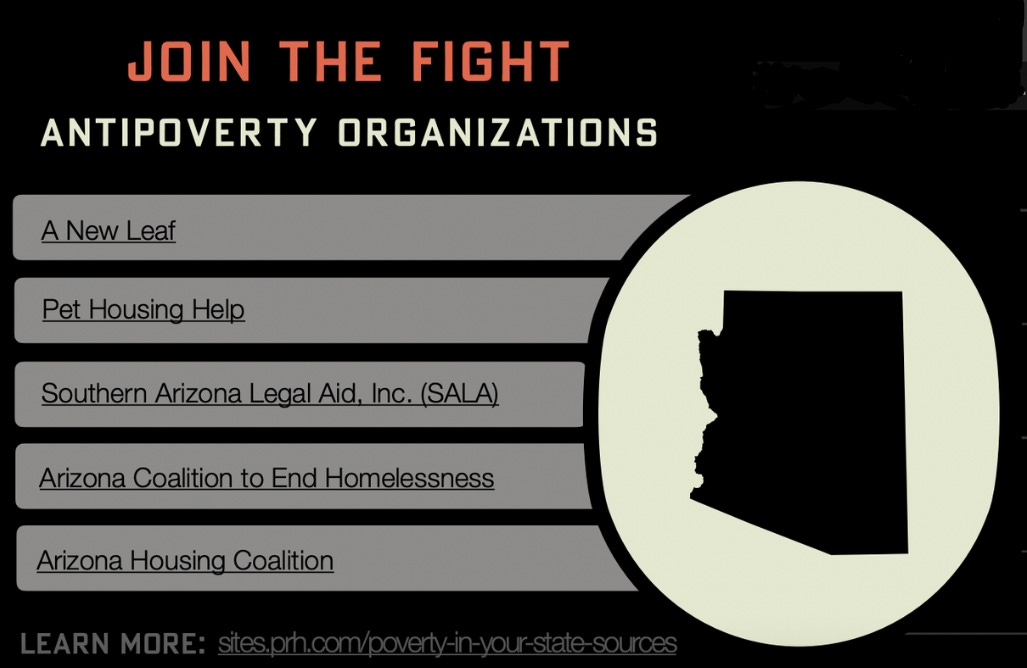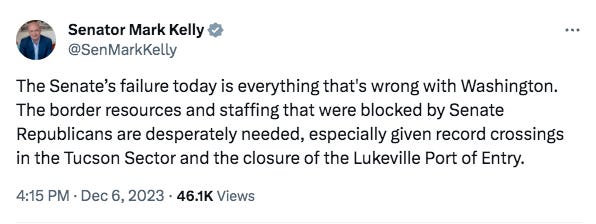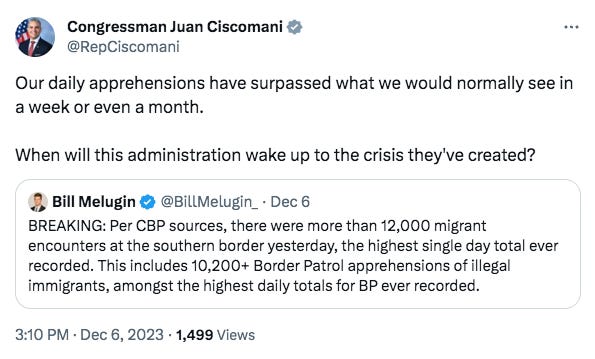The Daily Agenda: Fixing a self-created problem
An Arizona author takes a deep dive into poverty … Most people benefit from the system, but they can also help to change it … No taxpayer help for election charges.
Pulitzer Prize-winning author Matthew Desmond is making a stop in Tucson next week as part of the 40th anniversary celebration of the Primavera Foundation, a local nonprofit that works to provide pathways out of poverty.
Desmond’s second book, “Poverty, by America,” was published earlier this year and explores financial inequity in the United States. It follows his 2016 work “Evicted: Poverty and Profit in the American City,” which won the Pulitzer Prize for General Nonfiction. “Evicted” tells the stories of eight families in Milwaukee, Wisconsin who were struggling to pay rent during the financial crisis of 2007-2008.
A Winslow, Arizona native, Desmond told Caitlin he’s long been driven by the question of why there is so much poverty in America, as a child and all the way through college and grad school. Desmond attended Arizona State University, thanks to scholarships and loans, working the entire time while also volunteering with Habitat for Humanity.
He wrote in “Poverty, by America” that he quickly realized after arriving in Tempe that he led a very different life than many of his fellow students.
“My classmates were driving BMWs and convertible Mustangs. For most of college, I didn’t have a car,” he wrote in the book. “My classmates were going out for sushi. I stocked canned sardines and saltine crackers in my dorm room.”
He began studying inequality, continuing his research in grad school at the University of Wisconsin-Madison and eventually writing “Evicted.” But he still knew there was so much more to the problem.
“I’ve been haunted by this question for a long time, why there’s so much poverty in America,” Desmond told Caitlin. “And after seeing the deep level of poverty in Milwaukee … I think this is my beat.”
He said he wrote “Poverty, by America” to try to explain why the richest country on earth has more poverty than any other advanced democracy and to help readers understand that this is a problem that can be solved, and they can be part of the solution.
The book is 271 pages of research, references and footnotes that provides plenty of evidence that poverty in this country is a self-created problem. It also illustrates several ways in which people can become “poverty abolitionists” and help create equity and even prosperity.
“We don’t have to live with this, it’s not inevitable,” he said. ”The richest country in the world can and should put an end to it.”
Desmond said oftentimes people don’t even recognize that they’re contributing to poverty, which relies on some people being made small so that others can grow.
“I want people to write themselves into the story and understand how they’re a part of the problem and can also be part of the solution,” he said. “We can divest and do things differently.”
A lifelong scholar on poverty, Desmond said he was still surprised by some of his findings, most notably the imbalance of the welfare state.
He found that the average family at the bottom 20% of income received about $25,000 a year from the government through tax benefits, programs and more, but the richest 20% of families received almost $35,000 a year — nearly 40% more.
“We’re giving the most to families that need it the least,” he said. “And we have the shamelessness to tell this story about not being able to do more to fight poverty.”
But it’s not hopeless, he said. The country is changing, old myths about poverty are dying and people from both sides of the political spectrum are fed up with issues like inequality, bad jobs and housing instability.
“An America without poverty is a more vibrant, fair country and I think everyone is pining for that,” he said. “The book makes a case that each one of us in our own way can become poverty abolitionists by expressing that in our own way. Whether that be shopping differently, going to a local zoning board meeting or joining an anti-poverty movement.”
Desmond said he’s already heard of people taking action after reading the book, pointing to a church group in Atlanta that started a low- or no-interest lending program to help undercut the exploitative payday loan system.
“A lot of people are hungry about this topic and want to have conversations about poverty,” he said. “Part of my job is to not only show people a real, actual, tangible path, but also to critique their hopelessness and show them that change is possible.”
Desmond is trying to get the book into as many hands as possible, with a paperback version coming in March and the creation of materials to help teachers and professors adopt it into their curriculum.
He’s in talks with various social justice organizations about ways to get the message out and is designing a museum exhibit around the book, as was done with “Evicted.” He’s also created a website to help connect readers with anti-poverty resources and families in need with social services.
“Whatever keeps you up at night, poverty is there in that issue, whether it be democracy, public safety, housing or whatever else,” he said. “Even those of us who are very secure in money and have found prosperity, we want a country without poverty, too. This affects all of us.”
You can hear from Desmond firsthand on Tuesday at 6 p.m. at the Fox Tucson Theatre, with all net proceeds benefiting the Primavera Foundation, which just received a one-time $5 million Bezos Day 1 Families Fund grant. Desmond will talk about his book, its findings and potential solutions during the event, which will also include an audience Q&A and book signing.
Not on the taxpayer’s dime: Cochise County Supervisors Tom Crosby and Peggy Judd will have to pay their own legal costs, and any fines, as they deal with last week’s criminal indictment on charges of interfering in the 2022 election, the Arizona Republic’s Sasha Hupka reports.
"Though the conduct related to their actions while they were on the board, they are indicted as people — regular people," Cochise County Attorney Brian McIntyre said. "This is a criminal case against two individuals, so it doesn't involve the county in terms of county resources."
Embracing AI: Teachers at universities in Arizona are designing course materials that embrace the positive side of artificial intelligence, such as writing code for a keyboard designed for people with cerebral palsy, KJZZ’s Bridget Dowd reports. At the University of Arizona, students are trying to learn how to use AI tools that are already being used in the professional world, while professors are trying to weed out AI-enabled plagiarism.
Searching for answers: Officials in Sonora are trying to come up with ways to lessen the number of migrants who are crossing the border into Arizona, the Arizona Daily Star’s Emily Bregel reports. The sharp increase in migrants over the past few months led U.S. officials to close the Lukeville port of entry indefinitely so port officers could help process migrants. Officials in Sonora are considering beefing up checkpoints and “migration filters” to direct migrants to shelters south of the border.
Waiting and waiting: As officials process migrant women and children first, hundreds of men are waiting for days in the desert near Lukeville, Arizona Public Media’s Danyelle Khmara reports. Many crossed through breaches in the border wall and now spend chilly nights sleeping around small fires as they wait for their turn to speak with officials.
Rural teacher shortage: After the search for local teachers came up short, school officials in Elgin and Patagonia decided to hire international teachers from India, Cuba, and elsewhere, Patagonia Regional Times’ Dottie Farrar reports.
“There is a nationwide teacher shortage, worse in Arizona and extreme in rural Arizona,” said Elgin School Principal Mary Faley. For the school year 2023-24, “we had a shortage of qualified candidates, or a lack of candidates altogether, for two vacant positions.”
Stone or Oracle: Today is your last chance to weigh in on whether the city’s first Bus Rapid Transit corridor will be Stone Ave or Oracle Road. City of Tucson staff are asking residents to fill out a survey by 11:59 p.m.
10.5: The percentage of people in 2019 living in poverty, according to Desmond’s research in “Poverty, by America.” Desmond wrote that in 1970, 12.6% of people lived in poverty, meaning that the needle hasn’t moved much at all over the last fifty years.
We want to keep reporting on the issues that are important to our community, but we need your support to do it. Consider upgrading to a paid subscription and help us stick around.




